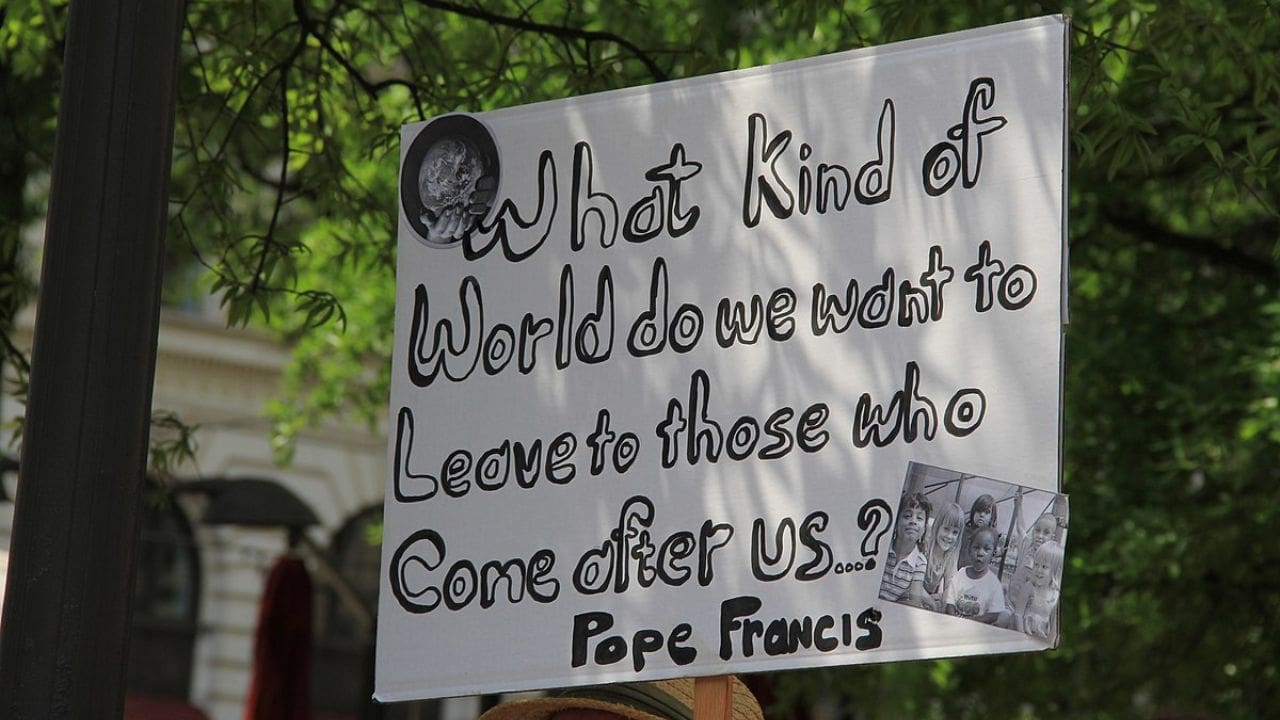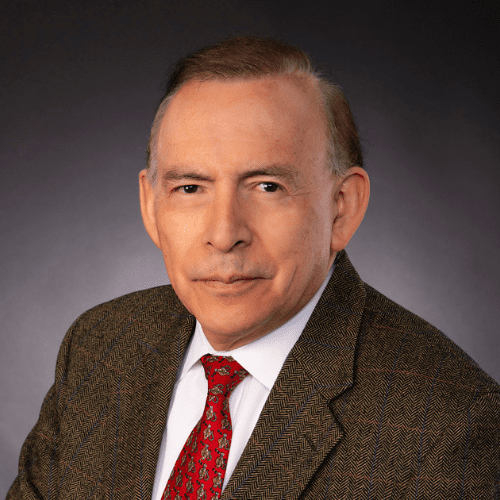Pope Francis released this apostolic exhortation “to all people of good will on the climate crisis” on October 4, the feast day of St. Francis of Assisi. Its Latin title refers to the message of St. Francis to “praise God for all of God’s creatures.” (#1) This letter to the world is an addendum to his 2015 encyclical “Laudato Si” (“Praise Be,” the beginning words of a canticle by St. Francis). That encyclical is known as “On Care for Our Common Home.”
Pope Francis decided to write Laudate Deum because “climate change is one of the principal challenges facing society and the global community” (#3) but he is gravely disappointed that “our responses have not been adequate.” (#2) The acceleration of global warming is evident now. “Despite all attempts to deny, conceal, gloss over or relativize the issue, the signs of climate change are here and increasingly evident.” (#5)
According to Pope Francis, “it is no longer possible to doubt the human–‘anthropic’–origin of climate change.” (#11) He says that it is a fact that the average global temperature has risen dramatically with the increase use of fossil fuels. The consequence is the melting of glaciers and the polar regions, the acidification of the oceans, and the rising of sea level. He concludes that “the change in average surface temperatures cannot be explained except as the result of the increase of greenhouse gases.” (#14) He believes that some effects of the climate crisis are already irreversible.
What has gotten us to this point? Pope Francis argues that a growing technocratic paradigm that exploits nature because of unbridled power and economic ambition is the underlying issue. Humans have forgotten that we are part of nature and that how we interact with the rest of nature affects our future. Therefore, “we need to rethink among other things the question of human power, its meaning and its limits.” (#28) We need to reassess an economic mentality about maximum gain at minimal cost because such an attitude has serious consequences about care of our common home and care for the poor and needy.
The 2015 Paris Agreement has ambitious goals that are not currently being met. Pope Francis hopes that the next climate conference will lead to the “necessary transition towards clean energy sources such as wind and solar energy, and the abandonment of fossil fuels.” (#55)
Pope Francis also addresses the weakness of international politics. Individual nations acting alone cannot solve the climate crisis or any of our other global problems. He says that we need multilateral agreements based on the principle of subsidiarity. Solving global problems requires “establishing global and effective rules” (#42) and “increased ‘democratization’ in the global context.” (#43)
The reason why humanity has been unable to solve major global problems is because of our current international system of sovereign nation-states. International law is a system of non-binding treaties. No nation is required to become a party to any international treaty. National governments that enter into treaties can withdraw from them or ignore them based on their perceived national interest.
In Laudato Si, Pope Francis agreed with several previous popes that “there is urgent need of a true world political authority.” (#175) Many Catholic leaders have been arguing that outlawing war and genocide as well as solving global problems such as climate change will require a truly effective democratic world public authority that can create and enforce world laws and prosecute individuals who violate them. Until such a system is created, Pope Francis says that it is imperative that national governments become parties to effective environmental treaties and that they keep their treaty obligations.
With this letter to the global community, Pope Francis continues his warning about the existential crisis caused by climate change. He emphasizes the physical and spiritual dimensions of this crisis. This letter needs to be studied by members of the world community because it concerns the future of our common home.
Image credit: Dcpeopleandeventsof2017, CC BY-SA 4.0, via Wikimedia Commons



























